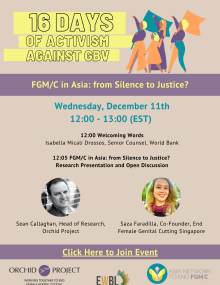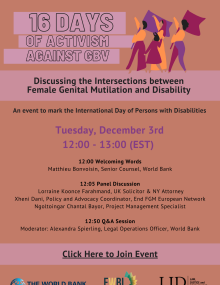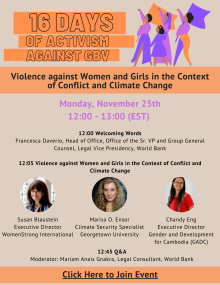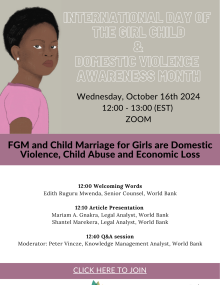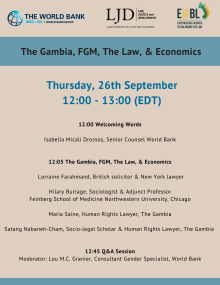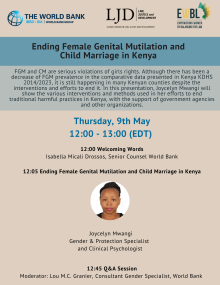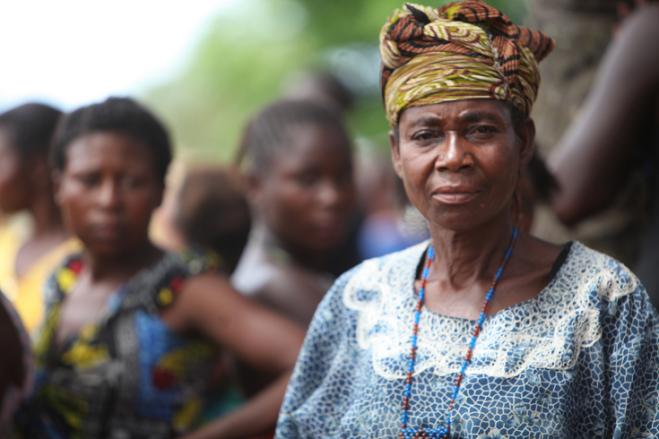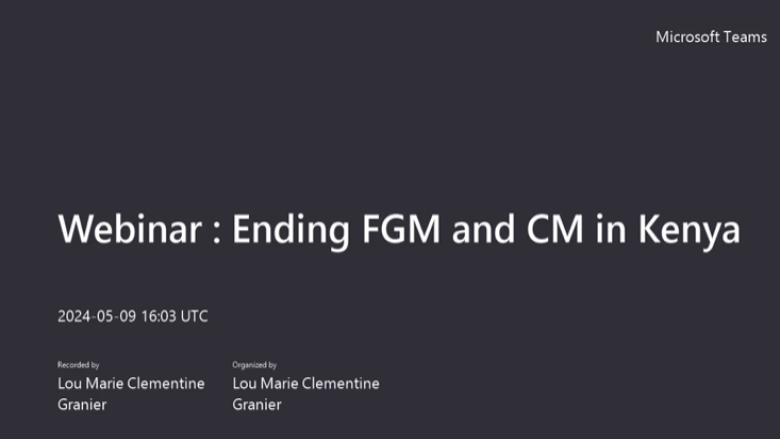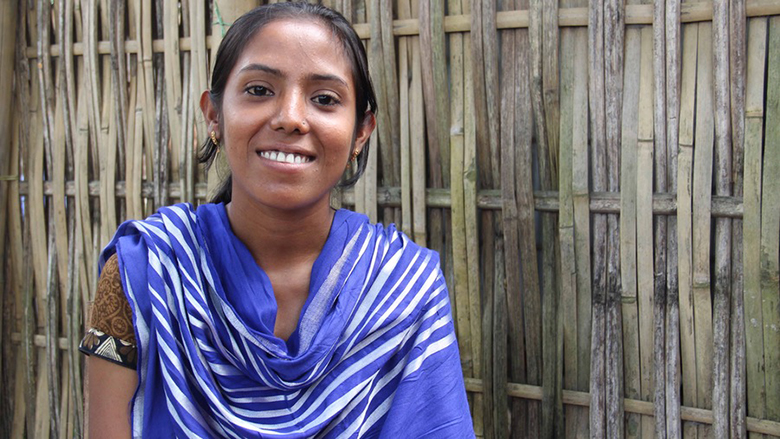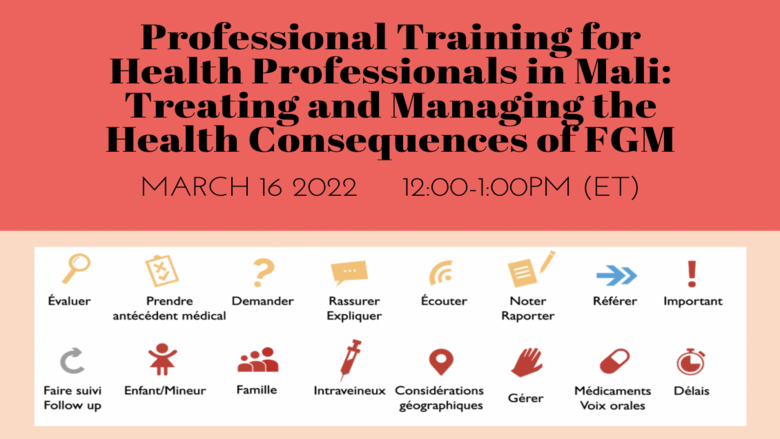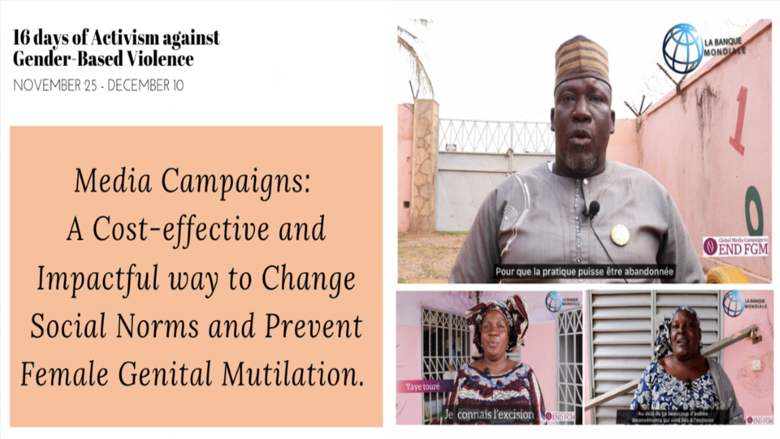Female Genital Mutilation/Cutting (FGM/C) is a development issue and an extreme form of violence against women and girls that affects more than 200 million women in the world. FGM/C is a harmful practice proven to impact the physical and mental health of survivors from the moment of the cutting, with prolonged and irreversible consequences during their entire lives. The practice may also lead to death.
Studies show that FGM/C has economic and social consequences and a high obstetric cost although a comprehensive study on the exact extent of these economic, health and social costs is still to be carried out. Beyond the data and the statistics, researcher have shown that FGM/C deprives women of sexual satisfaction, sexual health and psychophysical well-being. In 2012, 2018 and 2020, the United Nations General Assembly adopted resolutions urging the international community to intensify global efforts to eliminate female genital mutilation/cutting (FGM/C) (A/RES/67/146 and A/RES/73/582 ). This Working Group wishes to respond to that call.
The FGM/C Legal Working Group will operate at the intersection of Gender Based Violence (GBV), Traditional Harmful Practices, Law, and Health. It will debate and research effective ways in which FGM/C issues can be integrated into different programs. Rising from the 2021 Zero Tolerance Day for FGM/C’s theme “No Time for Global Inaction: Unite, Fund and Act to End FGM/C”, the working group wishes to actively participate to the intensification and acceleration of efforts with the help of GFLJD and external partners.
The Working Group will instantly focus on five actionable items:
- An annual event to mark the Zero Tolerance Day (around February 6);
- Updating of the Compendium of International and National Legal Frameworks on FGM;
- Regular “Brown Bag Lunch” conversations on Law and FGM;
- Eight to ten Training Legal Manuals and trainings for legal professionals in selected countries;
- Community Legal Manuals to accompany the Training Legal Manuals to improve legal literacy.










